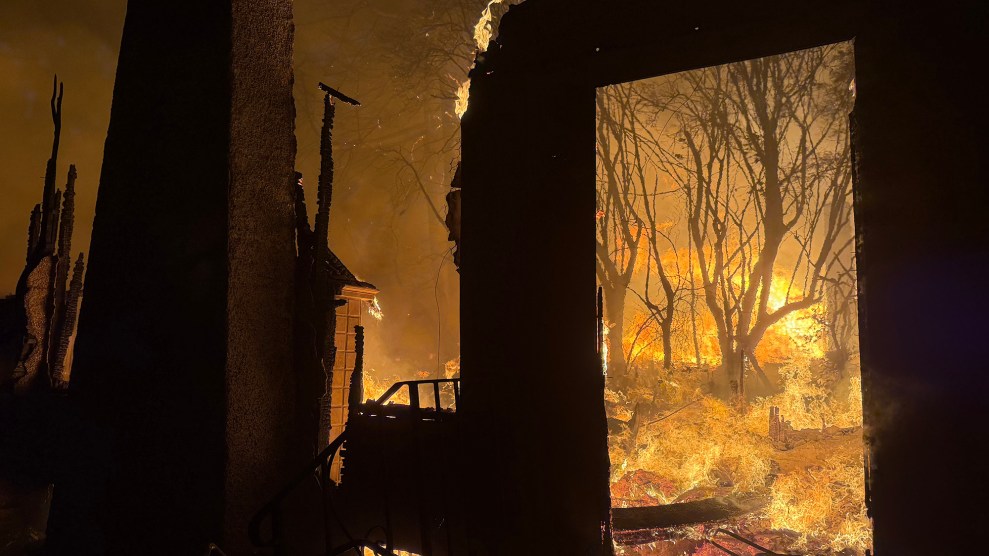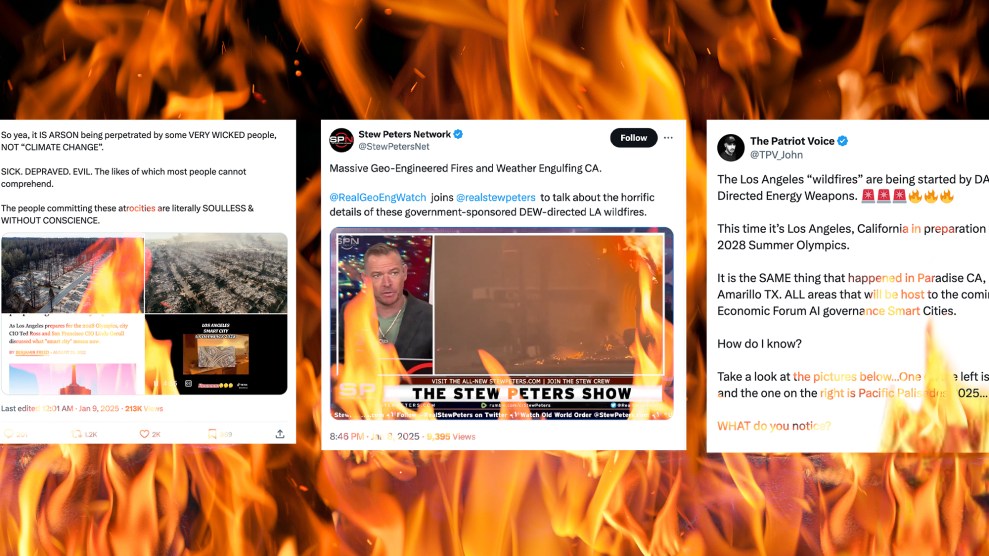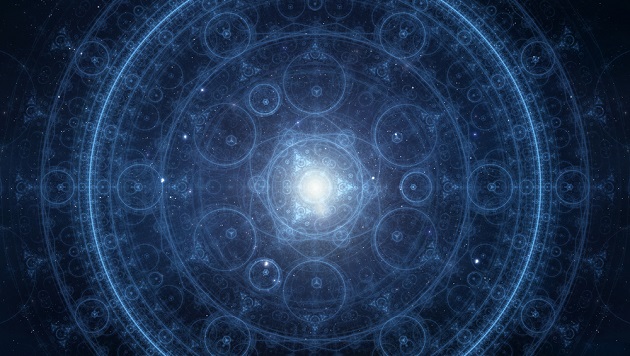
<a href="http://www.shutterstock.com/pic-146811044/stock-photo-abstract-new-age-spiritual-background.html?src=b23Z02hzWkQMa0pfKf1q8Q-1-8">pixelparticle</a>/Shutterstock
“I believe in a lot of astrology.” So commented pop megastar Katy Perry in a recent GQ interview. She also said she sees everything through a “spiritual lens”…and that she believes in aliens.
According to data from the National Science Foundation’s just-released 2014 Science and Engineering Indicators study, Americans are moving in Perry’s direction. In particular, the NSF reports that the percentage of Americans who think astrology is “not at all scientific” declined from 62 percent in 2010 to just 55 percent in 2012 (the last year for which data is available). As a result, NSF reports that Americans are apparently less skeptical of astrology than they have been at any time since 1983.
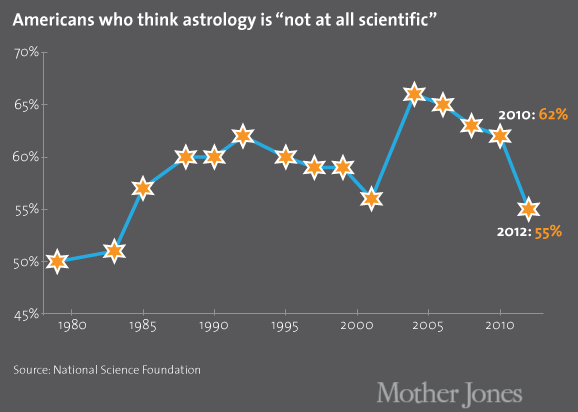
The data on Americans’ astrological beliefs are compiled by NSF but come from a variety of sources; since 2006 they have come from the General Social Survey. Over the years, the GSS and other surveys have asked Americans a recurring question: “Would you say that astrology is very scientific, sort of scientific, or not at all scientific?”
In response, a substantial minority of Americans, ranging from 31 to 45 percent depending on the year, say consider astrology either “very scientific” or “sort of scientific.” That’s bad enough—the NSF report compares it with China, where 92 percent of the public does not believe in horoscopes—but the new evidence suggests we are also moving in the wrong direction. Indeed, the percentage of Americans who say astrology is scientifically bunk has been declining ever since a high point for astrology skepticism in 2004, when it hit 66 percent.
The recent increase in astrological credulity was most dramatic among those with less science education and less “factual knowledge,” NSF reported. In the latter group, there was a staggering 17 percentage point decline in how many people were willing to say astrology is unscientific, from 52 percent in 2010 to just 35 percent in 2012. Also apparently to blame are younger Americans, aged 18 to 24, where an actual majority considers astrology at least “sort of” scientific, and those aged 35 to 44. In 2010, 64 percent of this age group considered astrology totally bunk; in 2012, by contrast, only 51 percent did, a 13 percentage point change.
Here’s a breakdown of the changes in Americans’ astrology beliefs by age group:
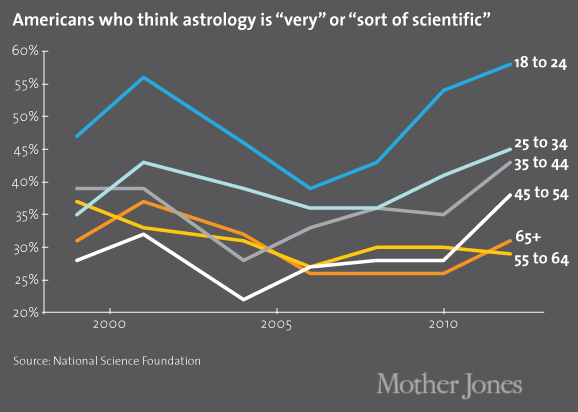
So what’s behind these data? The lead author of the report chapter in question, public opinion specialist John Besley of Michigan State University, cautions that we should probably wait for further data “to see if it’s a real change” before speculating. But, he admits, the apparent increase in astrology belief “popped out to me when I saw it.”
So if it turns out that Americans are indeed becoming even more devoted to astrology than they already are? As with many things in life, there’s a Shakespeare quotation appropriate to the situation: “The fault, dear Brutus, is not in our stars, but in ourselves.”









